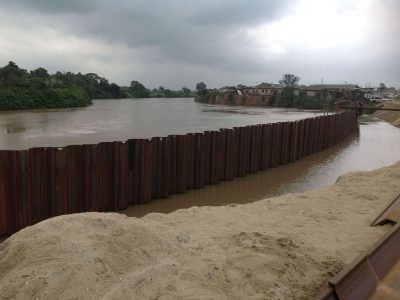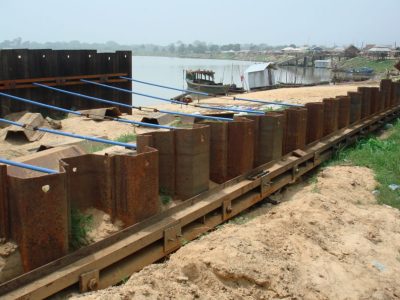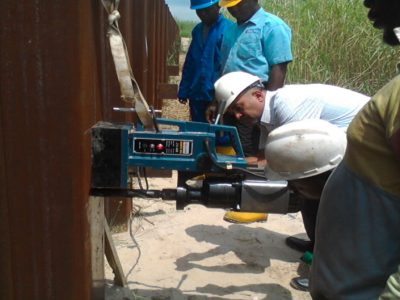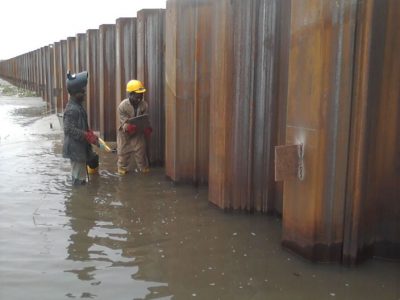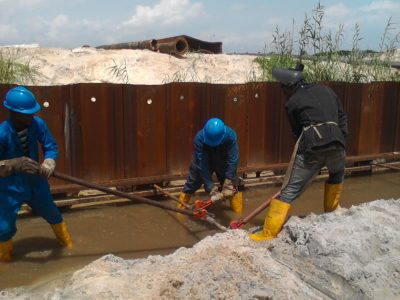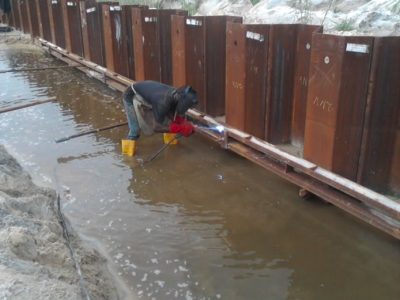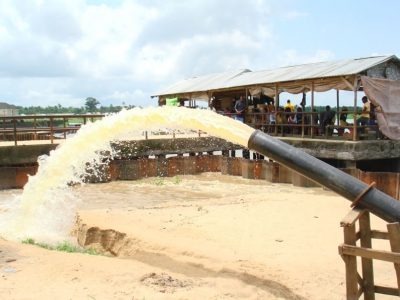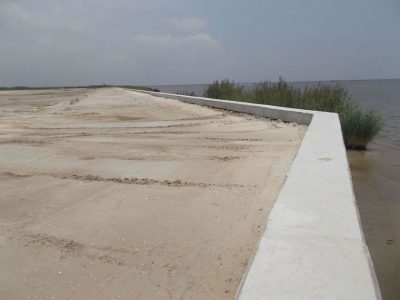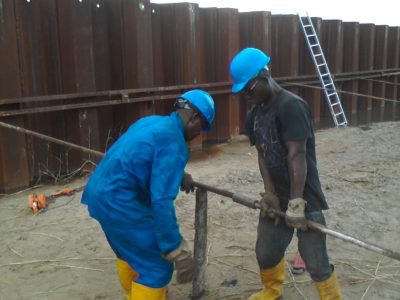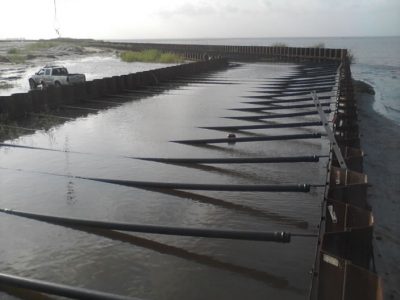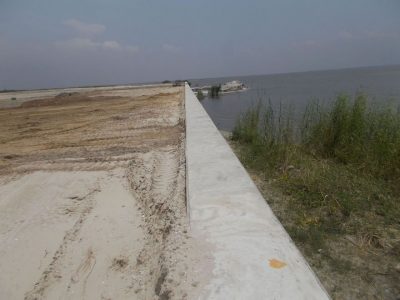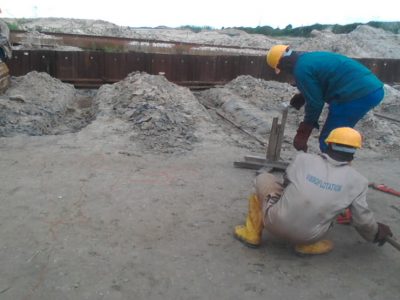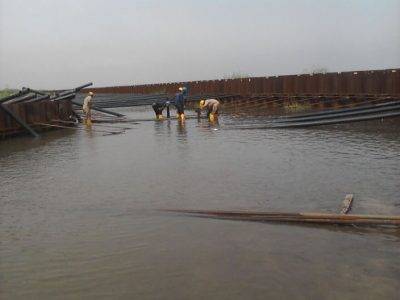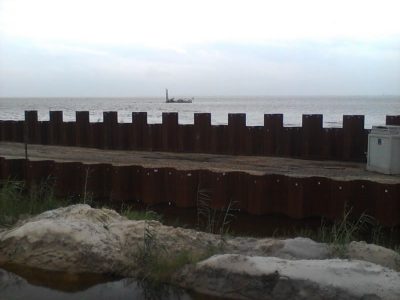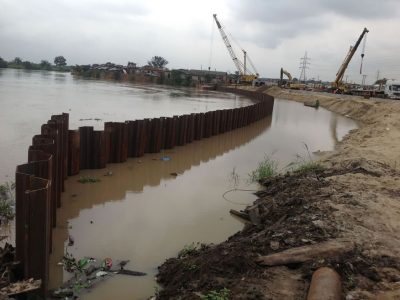Shoreline protection is the process of constructing a barrier along the shoreline to prevent the shore from being washed away by erosion or scouring activities.
Shore protection can also be adopted for land reclamation where the existing natural shoreline is shifted further into the water to regain additional dry land for various activities.
Various Shore protection methods include:
- Grassy of the shore
- Laying of Geomattress/Geofabric
- Sheet Piling Work
- Stone Pitching/Laying of Interlocking Sandcrete
Sheet Piling Work
Various materials that can be adopted in sheet piling work include:
- Steel Sheet Pile
- Concrete Sheet Pile
- Plastic Sheet Pile
- Vinyl Sheet Pile
- Wooden Sheet Pile
- Fiberglass Sheet pile
The first three (Steel, Concrete and Plastic) are the most commonly used, depending on prevailing factors around the site.
| Concrete | Steel | Plastic | |
|---|---|---|---|
| Installation Techniques | Cubersome | Simple | Simple |
| Maximum Length | Limited to 12m | Unlimited | Limited |
| Economy | Materials –Cheap, installation-High | Materials-high, Installation- Cheap | Materials-cheap, Installation-Cheap |
| durability | Good | Good | Good |
| Self Weight | High | Medium | Light |
| Aesthetics | Poor | Good | Very good |
| Speed of Installation | Low | High | High |
| Leakage of retained materials | High | Low | Low |
| Strength | High | High | Low |
Design Considerations
Factors of utmost importance in designing of sheet pile include;
- Height of retained materials/final dredged level
- Nature of materials being retained/in-situ underlying soil
- Activities along the shoreline(Probable loading condition)
- Chemical nature of water/soil prevailing in the area
- Anticipated service life
- Locally available technology/materials
- Environmental impact
Pre design Requirement
- Subsoil information
- Topographical survey
- Bathymetric survey
